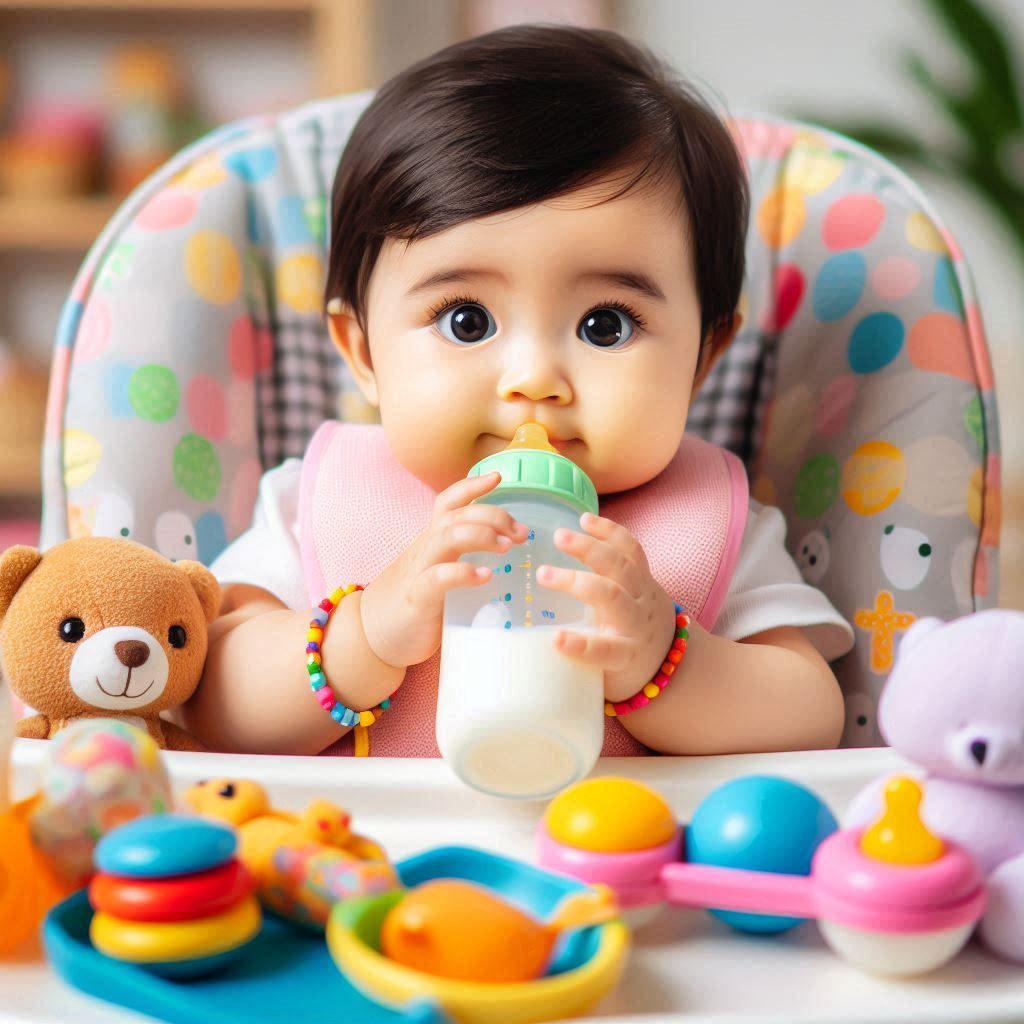How Many Times Do I Feed Infant Per Day
Feeding a baby is one of the most important and sometimes confusing parts of early parenthood. As a new mom or dad, you might find yourself constantly wondering if your little one is getting enough to eat. Don’t worry – you’re not alone in this! Let’s dive into the world of infant feeding and figure out just how often your baby needs to eat.
Quick Answer
Newborns typically need to be fed 8-12 times per day. As they grow, this frequency generally decreases to about 6-8 times per day by 6 months of age. However, every baby is unique, and feeding patterns can vary based on factors like age, weight, and individual needs.
My Journey as a New Parent
Before we dive into the nitty-gritty details, let me share a quick story from my early days as a parent. When my son Jake was born, I was totally overwhelmed by the feeding schedule. I remember one night, bleary-eyed at 3 AM, trying to figure out if it was time for another feeding or if I could catch a few more minutes of sleep. It felt like I was feeding him all the time! But as the weeks went by, we slowly found our rhythm. Now, looking back, those late-night feeding sessions are some of my most treasured memories. So, if you’re in the thick of it right now, hang in there – it does get easier!
Understanding Newborn Feeding Patterns
Let’s start at the beginning – the newborn stage. This is when feeding feels most frequent and can be pretty overwhelming for new parents.
How Often Do Newborns Need to Eat?
Newborns have tiny tummies, about the size of a cherry on day one! This means they need to eat often to keep their little bodies fueled. Here’s what you can expect:
- In the first few weeks, most babies need to eat every 2-3 hours, day and night.
- This translates to about 8-12 feedings in a 24-hour period.
- Some babies might even eat more frequently, up to 1-2 hours apart.
Signs Your Baby is Hungry
Babies can’t tell us when they’re hungry with words, but they have their own ways of communicating. Look out for these hunger cues:
- Rooting (turning head and opening mouth)
- Putting hands to mouth
- Lip smacking
- Fussing or squirming
Pro tip: Try to feed your baby when you notice these early signs. Waiting until they’re crying often makes it harder for them to latch or take a bottle.
Breastfeeding vs. Formula Feeding
Whether you’re breastfeeding or formula feeding, the general feeding frequency is similar for newborns. However, there are some differences to keep in mind:
Breastfeeding
- Breast milk is digested more quickly than formula, so breastfed babies might need to eat slightly more often.
- Feeding sessions can last anywhere from 10-45 minutes.
- It’s normal for breastfed babies to have growth spurts where they want to nurse more frequently for a few days.
Formula Feeding
- Formula-fed babies might go slightly longer between feedings, as formula takes a bit longer to digest.
- Most formula-fed newborns eat every 3-4 hours.
- A typical feeding is about 2-3 ounces of formula.
How Feeding Changes as Your Baby Grows
As your baby gets bigger, their feeding patterns will change. Let’s break it down by age:
1-3 Months
Around this time, your baby’s tummy is growing, which means they can take in more milk at each feeding. You might notice:
- Feedings spread out to every 3-4 hours.
- Your baby might sleep for longer stretches at night (lucky you!).
- Feeding sessions might become shorter as your baby becomes more efficient.
3-6 Months
By now, your baby is probably settling into a more predictable routine. Here’s what to expect:
- Most babies this age eat about 6-8 times in 24 hours.
- Many babies can sleep for 6 hours or more without a feeding at night.
- Your baby might start showing interest in watching you eat!
6-12 Months
Big changes happen in this period as your baby starts solid foods:
- Milk feedings might decrease to 4-6 times per day.
- Your baby will start eating solid foods, usually around 6 months.
- By 12 months, many babies are down to 3-4 milk feedings a day, with 3 meals and 2 snacks of solid food.
Feeding On Demand vs. Scheduled Feedings
There’s often debate about whether to feed on demand (whenever your baby seems hungry) or on a schedule. Here’s the scoop:
Feeding On Demand
- Recommended for newborns and young babies.
- Helps establish milk supply for breastfeeding moms.
- Ensures baby gets enough to eat during growth spurts.
Scheduled Feedings
- Can work well for older babies who have established good growth.
- Might help create more predictable routines for parents.
- Should still be flexible – don’t deny a hungry baby just because it’s not “time” to eat.
Remember, every baby is different. Some naturally fall into a predictable routine, while others prefer to snack throughout the day. Neither approach is wrong – it’s all about finding what works best for you and your baby.
Common Feeding Concerns
As you navigate your baby’s feeding journey, you might run into some bumps along the way. Here are some common concerns and how to handle them:
Is My Baby Eating Enough?
This is probably the #1 worry for new parents. Here are some signs your baby is getting enough to eat:
- Steady weight gain – your pediatrician will track this at check-ups.
- 6-8 wet diapers a day.
- Seems satisfied after feedings.
- Alert and active when awake.
What About Night Feedings?
Night feedings are a normal part of infancy, but they can be tough on tired parents. Here’s what you need to know:
- Newborns need to eat around the clock, including at night.
- By 3-4 months, some babies can sleep for longer stretches without eating.
- By 6 months, many babies can sleep through the night without a feeding, but it’s still normal if they need one.
Cluster Feeding
Sometimes babies want to eat very frequently for a period of time, often in the evenings. This is called cluster feeding and it’s totally normal! It often happens during growth spurts or when babies are trying to increase mom’s milk supply.
When to Worry
While variations in feeding patterns are normal, there are some signs that might indicate a problem:
- Not gaining weight or losing weight
- Fewer wet diapers than expected
- Seeming lethargic or uninterested in feeding
- Projectile vomiting after feedings
If you notice any of these signs, it’s best to check in with your pediatrician.
Wrapping It Up
Feeding your baby is a journey, and like any journey, it has its ups and downs. Remember, the “right” number of feedings can vary from baby to baby and even from day to day with the same baby. The most important thing is to pay attention to your baby’s cues and growth.
As your baby grows, feeding times will become less frequent and you’ll gradually find more predictability in your days. Before you know it, you’ll be chasing a toddler around with a spoon, wondering where your tiny newborn went!
Next Steps
- Keep track of your baby’s feedings and wet diapers for the first few weeks. This can help you feel more confident that your baby is getting enough to eat.
- Don’t hesitate to reach out to a lactation consultant or your pediatrician if you have concerns about feeding.
- Remember to take care of yourself too – proper nutrition and rest are important for parents, especially if you’re breastfeeding.
Feeding your baby is about more than just nutrition – it’s a time for bonding and getting to know your little one. So take a deep breath, trust your instincts, and enjoy these precious moments. You’ve got this, parent!

Jessica Winter is a passionate parenting blogger with two years of experience guiding new and seasoned parents through the joys and challenges of raising babies. Her insightful posts blend personal anecdotes with expert advice to offer a warm and practical perspective on modern parenting.

